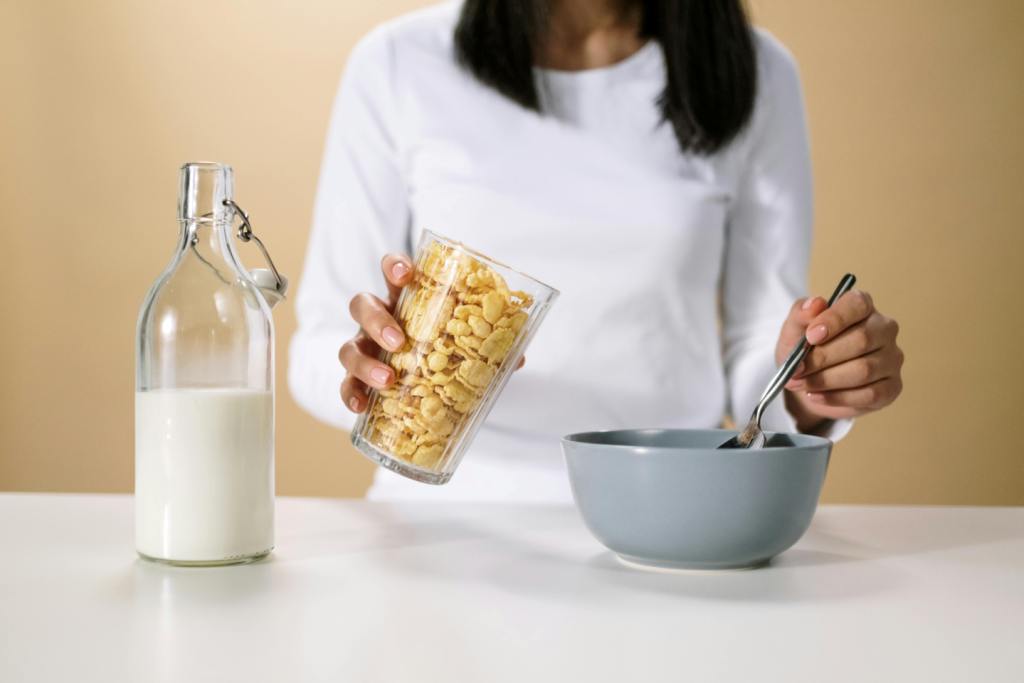Vitamin D on a Vegan Diet

Vitamin D, often referred to as the "sunshine vitamin," is a crucial nutrient that plays many roles in the human body.
Despite its name, vitamin D is actually a prohormone rather than a vitamin, as it can be synthesized by the body in response to sunlight exposure.
This unique characteristic makes it somewhat different from other vitamins, which typically need to be obtained through diet.
What is Vitamin D?
There are two major forms, vitamin D2 which is found in vegetables and fortified foods and vitamin D3 which is mainly formed from our skin’s exposure to the sun but can also be found in some animal based foods.
Once produced or ingested, both forms of vitamin D undergo metabolic processes in the liver and kidneys to become active forms that the body can use.

What is it for?
Bone Health:
One of the most well-known roles of vitamin D is its contribution to bone health. It plays a crucial role in calcium absorption and helps regulate calcium and phosphorus levels in the blood, which are essential for bone mineralization and strength. Adequate vitamin D levels are therefore crucial for preventing conditions like osteoporosis and rickets.
Immune Function:
Vitamin D plays a vital role in regulating the immune system and has been shown to enhance the function of immune cells.
Adequate vitamin D levels may help reduce the risk of infections and autoimmune diseases and support overall immune health.
Mood Regulation:
There is growing evidence to suggest that vitamin D may play a role in mood regulation and mental health. Low vitamin D levels have been associated with an increased risk of depression, seasonal affective disorder (SAD), and other mood disorders. Sunlight exposure, which stimulates vitamin D production, is often linked to improved mood and overall well-being.
Muscle Function:
Vitamin D is important for muscle function and strength. It may help reduce the risk of falls and fractures in older adults by improving muscle function and coordination. Additionally, vitamin D deficiency has been linked to muscle weakness and increased risk of falls and injuries.
Heart Health:
Some research suggests that vitamin D may have benefits for heart health by helping to regulate blood pressure, reduce inflammation, and improve endothelial function. Adequate vitamin D levels may help lower the risk of cardiovascular diseases such as hypertension, heart disease, and stroke.


How to Get Vitamin D as a Vegan?
For us Vegans, obtaining good amounts of vitamin D can be a bit more challenging since most natural food sources of vitamin D are animal-based.
However, there are still many ways for us to ensure we meet our daily vitamin D requirements:
Sunlight Exposure:
The most natural and efficient way for our bodies to produce vitamin D is through exposure to sunlight.
When UVB rays from the sun hit the skin, a chemical reaction occurs, resulting in the synthesis of vitamin D3. Spending time outdoors, especially during peak sunlight hours (typically midday), can help stimulate vitamin D production.
Aim for about 10-30 minutes of sunlight exposure on the face, arms, and legs several times a week, depending on factors like skin tone, geographic location, and time of year.
The exact amount of vitamin D produced can vary widely, but it's estimated that exposure to sunlight can generate anywhere from 200 to 1,000 IU of vitamin D per day.
Fortified Foods:
Many plant-based foods are now fortified with vitamin D to help us meet our nutritional needs.
These include fortified plant milks (such as soy, almond, and oat milk), fortified orange juice, fortified breakfast cereals, and fortified tofu.
Fortified plant milks typically contain around 100-150 IU of vitamin D per 8-ounce (240-milliliter) serving.
Fortified orange juice can provide around 100 IU of vitamin D per 8-ounce (240-milliliter) serving.
Fortified breakfast cereals may contain anywhere from 40 to 100 IU of vitamin D per serving, depending on the brand and fortification level.
Fortified tofu can provide around 80-120 IU of vitamin D per 3-ounce (85-gram) serving, depending on the brand and fortification level.
Be sure to check the nutrition labels to see if vitamin D has been added.
Mushrooms:
Some varieties of mushrooms, particularly those exposed to ultraviolet (UV) light during growth or processing, contain vitamin D2. These include shiitake, maitake, and portobello mushrooms. Incorporating these mushrooms into your diet can provide a natural source of vitamin D.
Some studies have found that sun-exposed mushrooms like shiitake, maitake, and portobello mushrooms can contain anywhere from 100 to 400 IU of vitamin D2 per 3-ounce (85-gram) serving.
However, the exact vitamin D content can vary widely and may not always be consistent or reliable.
Supplements:
If it's challenging to obtain enough vitamin D (like factors mentioned above) through sunlight exposure and dietary sources, vegan-friendly vitamin D supplements are available.
Look for supplements that contain vitamin D2 or vitamin D3 derived from lichen, a type of fungi that grows symbiotically with algae.
These supplements are suitable for vegans and can help ensure you meet your daily vitamin D requirements.


How much Should we take?
The recommended daily intake of vitamin D can vary depending on factors such as age, sex, race, geographic location, sun exposure, and overall health status.
1. Babies (0-12 months): 400 IU (International Units)
2. Children and Adolescents (1-18 years): 600 IU
3. Adults (19-70 years): 600 IU *
*However, some experts suggest that higher doses, up to 800-1000 IU per day, may be necessary for certain populations, especially those with limited sunlight exposure or other risk factors for deficiency.
4. Adults over 70 years: 800 IU
Symptoms of Vitamin D deficiency:
1. Fatigue and Weakness:
Persistent fatigue and weakness, even after getting enough sleep and rest, can be early signs of vitamin D deficiency. This can impact your energy levels and overall sense of vitality.
2. Bone Pain and Muscle Aches:
Vitamin D plays a crucial role in calcium absorption and bone health. Deficiency in vitamin D can lead to soft, weak bones and an increased risk of bone-related conditions like osteoporosis. Bone pain, especially in the back, hips, and legs, along with muscle aches and weakness, may indicate insufficient vitamin D levels.
3. Frequent Illnesses and Infections:
Vitamin D is essential for immune function, and inadequate levels may impair the immune system's ability to defend against infections. Individuals with low vitamin D levels may experience more frequent illnesses, such as colds, flu, and respiratory infections.
4. Depression and Mood Changes:
There is growing evidence to suggest a link between vitamin D deficiency and mood disorders like depression and seasonal affective disorder (SAD). Low vitamin D levels may contribute to feelings of sadness, anxiety, and low mood, particularly during the winter months when sunlight exposure is reduced.
5. Hair Loss: While not as well-established as other symptoms, some research suggests that vitamin D deficiency may be associated with hair loss or alopecia. Adequate vitamin D levels are thought to support hair follicle health and growth, so deficiency may contribute to hair thinning or shedding.
6. Impaired Wound Healing:
Vitamin D plays a role in the inflammatory response and tissue repair processes in the body. Deficiency in vitamin D may impair wound healing and increase the risk of complications following injuries or surgeries.
7. Bone Deformities in Children:
In severe cases of vitamin D deficiency, children may develop bone deformities like rickets, a condition characterized by soft, weak bones. Rickets can lead to skeletal abnormalities, stunted growth, and developmental delays if left untreated.
It's essential to note that many of these symptoms can be caused by various other factors, so it's crucial to consult with a healthcare professional for an accurate diagnosis.
While obtaining enough vitamin D as a vegan may require a bit more planning and effort, it's entirely possible if done wright.
Remember to consult with a healthcare professional or registered dietitian for personalized advice on meeting your nutritional needs as a vegan and do regular blood tests.









